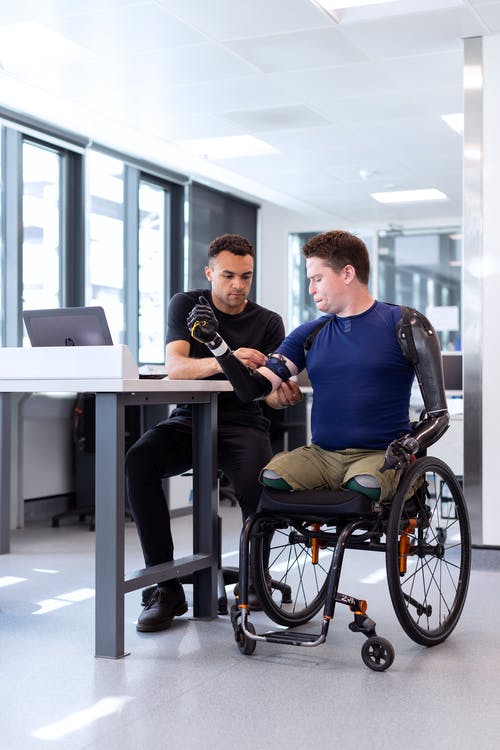
The National Institute on Mental Disability provides detailed information about the Medicare laws and regulations. Former Sen. Ted Kennedy (D.MA), sponsored “The Freedom From Limitations Act” that requires Medicare coverage for inpatient mental and disability care. The provision also covers nursing home costs for the mentally disabled. This provision serves as a guideline. However, many issues related to disability are dealt with by individual state laws.
Medicare patients are subject to a variety of limitations. Activity requirements are determined based on the individual’s condition. There are three types: Age, Physical impairment, or Written Test. Age requirements usually apply to persons between forty-five and eighty-two. The most stringent requirement for physical impairment, which is often the most severe, requires that persons be permanently disabled or have a severe physical limitation that would prohibit them from performing normal activities.
A series of requirements are required to be eligible for Medicare benefits. These requirements vary by state, but they all require that the applicant is completely disabled for at minimum two years and have not been in receipt of Medicare benefits for at less than five years. While partial benefits may be available for certain medical conditions, these programs are very limited and competitive. Part B of Medicare, prescription drug coverage, requires that people aged eighteen and older receive Medicare while still having a qualifying medical condition.
There are four types of tests that evaluate a person’s ability and capacity to perform the essential functions in life. These tests include Physician Certification (FAQ), Functional Assessment Quotient(FAQ), Partitioning qualification, and Medical History. The applicant’s Modified Gross Immobility (M GI) is the lowest scoring disability, but it is only one aspect of the four tests. The data from all four tests will determine how much compensation a disabled person will receive for their disability. Part A of the MGI data are standardized, while Parts B and D differ slightly. This information is used in making a Basic Health Claim.
In the United States, medical care for disabled persons is on the rise. Living in or using mobility aids is no longer considered abnormal. Individuals who can’t walk or use the hands can still enjoy the same independence as those who can. After rehabilitation, people with severe spinal cord damage may be able to use both their legs fully. Rehabilitation and physical therapy are two options to restore function and independence.
According to The American Association on Law of Rights in Disability, nine77 F.supp. Code Section 4200 that provides rights to disabled individuals, people with various sclerosis, deafness, autism, alcoholism, and drug abuse. This law was created to stop discrimination against disabled citizens, ensure access to public service and provide compensation for the suffering resulting from being disabled. It is a section of the Americans with Disabilities Act that is enforced through the home nursing care melbourne of Health and Human Services Office of Legal Support. The organization aids people with disabilities in protecting their civil rights.
Part A of the 4997 test is a written questionnaire. It asks applicants to list their medical conditions, work history and any other special conditions. They will also need to submit copies of any medical insurance documents or letters from their previous doctors. Applicants are then given a total MGI score based on all of the listed items. Part B asks applicants to fill out a short questionnaire about current medical conditions, any recent surgeries, and any current medications. Part D requires applicants to provide information about any current or previous emotional, mental or physical conditions that may affect one’s ability or ability to perform everyday activities.
The Equal Access Act guarantees that disabled people have equal access to Medicare benefits. With equal access to benefits come equal expenses. Most Medicaid claims are rejected because of insufficient information or inability to prove a specific condition. To be eligible for equal access to medical care, all applicants must be treated the same as everyone else and have the right to seek compensation.




